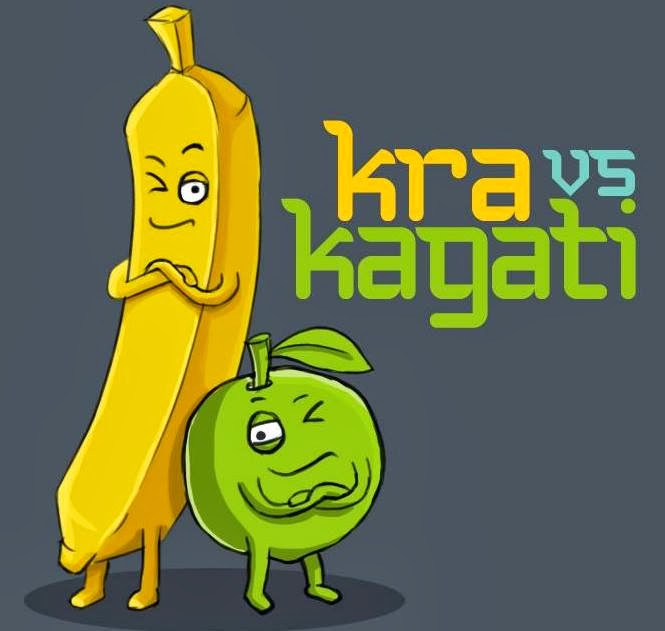Social entrepreneurship is a fast growing movement going on today world-wide. Social entrepreneurship simply means using business practices for the greater good of the society. And founder Director of Women Development Advocacy Center, Mr. Nanda Kishor Mandal knows it pretty well. He is also the conference coordinator of 2016 International conference on social entrepreneurship event that happened on june 30 – july 1. The event was organized to bring academicians, investors, entrepreneurs and students into a single platform to discuss about the growing need of social entrepreneurship in Nepal.
Social innovation, similarly, is an event for sharing innovative ideas and solutions to neglected social problems. This time it’s not about networking and talking but actually creating practical solutions for the good of the society. Mr. Nanda Kishor Mandal has been working for entrepreneurship development in Nepal from grassroots level, conducting programs and events.
An event such as this is very necessary, especially for Nepal. Nepal has faced quite a lot in past two years and has faced lots of economic downfalls. People who were already in difficult position faced major infrastructural crisis when Nepal faced fuel crisis. Not just in Nepal but throughout the globe it has played major roles. In the United Kingdom, initiatives such as Big Society have been designed to find and scale up the best social innovations. And in Japan, social innovation are rapidly taking root in the rebuilding efforts following the 2011 tsunami and nuclear disaster, which left immeasurable destruction on the country’s physical, cultural, and socio-political landscape. Africa similarly has taken huge leaps in social and economic growth in last 10 years through social innovations (note: to know more, read the article "path to a new Africa" in ssir.org). Amazingly, it is considered one of the fastest growing continents after Asia. Nepal, in the same way, needs to go through change for economic uplift through social innovation exchange.
However, I know most people would consider this to be an event for small minority of people and does not mean much for the society. Whether or not they are something for a small minority of people, they are prompted by motivations that most people can personally relate to: to be an active member of society, to take part in social activities, to spend time with like-minded people, to reduce the environmental impact of one’s life, to care for others, and - in the case of downshifting - to have a better work-life balance.
Lastly, social innovation exchange is a great podium for young students who are smart, driven and motivated for creating change. But that being said, it does not mean it is not for like-minded but lost and curious persons. But I do feel that everyone in the society wants to be more than just consumers. Everyone wants to be appreciated as a person, feel pride and dignity in what they do and this is something that cannot be bought in the market place. Social innovation exchange is such a platform where you are appreciated and have a chance to be part of something bigger that contributes to the society. With this, we, general public here have a chance to address the social problems and suggest possible solutions that can act as a framework for the better change tomorrow.
Personally, I am definitely going to attend this program. And I can’t help but suggest that to those who have ideas and want to make change. The program is going to be held in Pokhara for a whole week starting august 21.
For any details and queries you can contact wdacnpl@gmail.com
+Bnay Shrestha - Music enthusiast, blogger, Business student
Social innovation, similarly, is an event for sharing innovative ideas and solutions to neglected social problems. This time it’s not about networking and talking but actually creating practical solutions for the good of the society. Mr. Nanda Kishor Mandal has been working for entrepreneurship development in Nepal from grassroots level, conducting programs and events.
An event such as this is very necessary, especially for Nepal. Nepal has faced quite a lot in past two years and has faced lots of economic downfalls. People who were already in difficult position faced major infrastructural crisis when Nepal faced fuel crisis. Not just in Nepal but throughout the globe it has played major roles. In the United Kingdom, initiatives such as Big Society have been designed to find and scale up the best social innovations. And in Japan, social innovation are rapidly taking root in the rebuilding efforts following the 2011 tsunami and nuclear disaster, which left immeasurable destruction on the country’s physical, cultural, and socio-political landscape. Africa similarly has taken huge leaps in social and economic growth in last 10 years through social innovations (note: to know more, read the article "path to a new Africa" in ssir.org). Amazingly, it is considered one of the fastest growing continents after Asia. Nepal, in the same way, needs to go through change for economic uplift through social innovation exchange.
However, I know most people would consider this to be an event for small minority of people and does not mean much for the society. Whether or not they are something for a small minority of people, they are prompted by motivations that most people can personally relate to: to be an active member of society, to take part in social activities, to spend time with like-minded people, to reduce the environmental impact of one’s life, to care for others, and - in the case of downshifting - to have a better work-life balance.
Lastly, social innovation exchange is a great podium for young students who are smart, driven and motivated for creating change. But that being said, it does not mean it is not for like-minded but lost and curious persons. But I do feel that everyone in the society wants to be more than just consumers. Everyone wants to be appreciated as a person, feel pride and dignity in what they do and this is something that cannot be bought in the market place. Social innovation exchange is such a platform where you are appreciated and have a chance to be part of something bigger that contributes to the society. With this, we, general public here have a chance to address the social problems and suggest possible solutions that can act as a framework for the better change tomorrow.
Personally, I am definitely going to attend this program. And I can’t help but suggest that to those who have ideas and want to make change. The program is going to be held in Pokhara for a whole week starting august 21.
For any details and queries you can contact wdacnpl@gmail.com
+Bnay Shrestha - Music enthusiast, blogger, Business student























